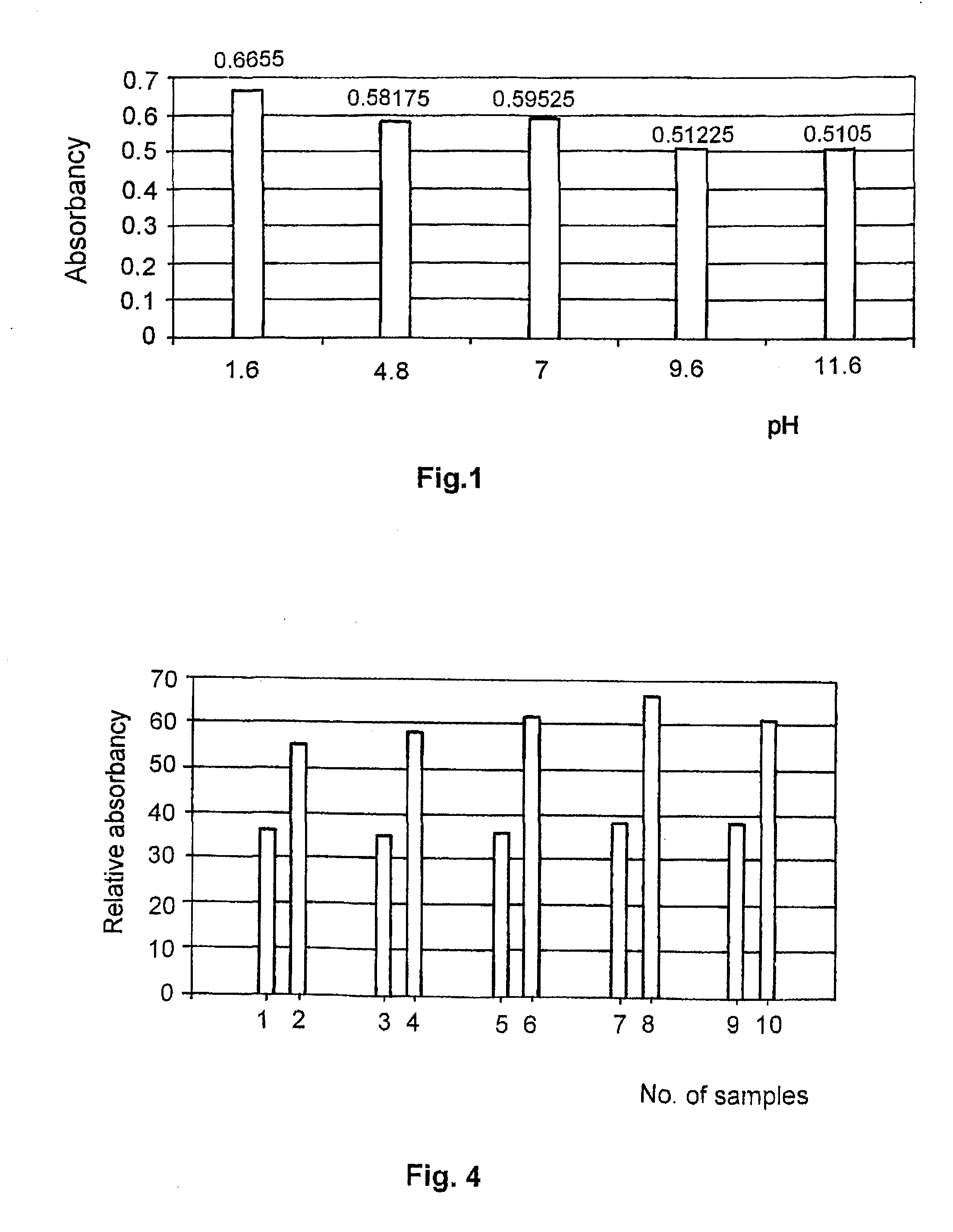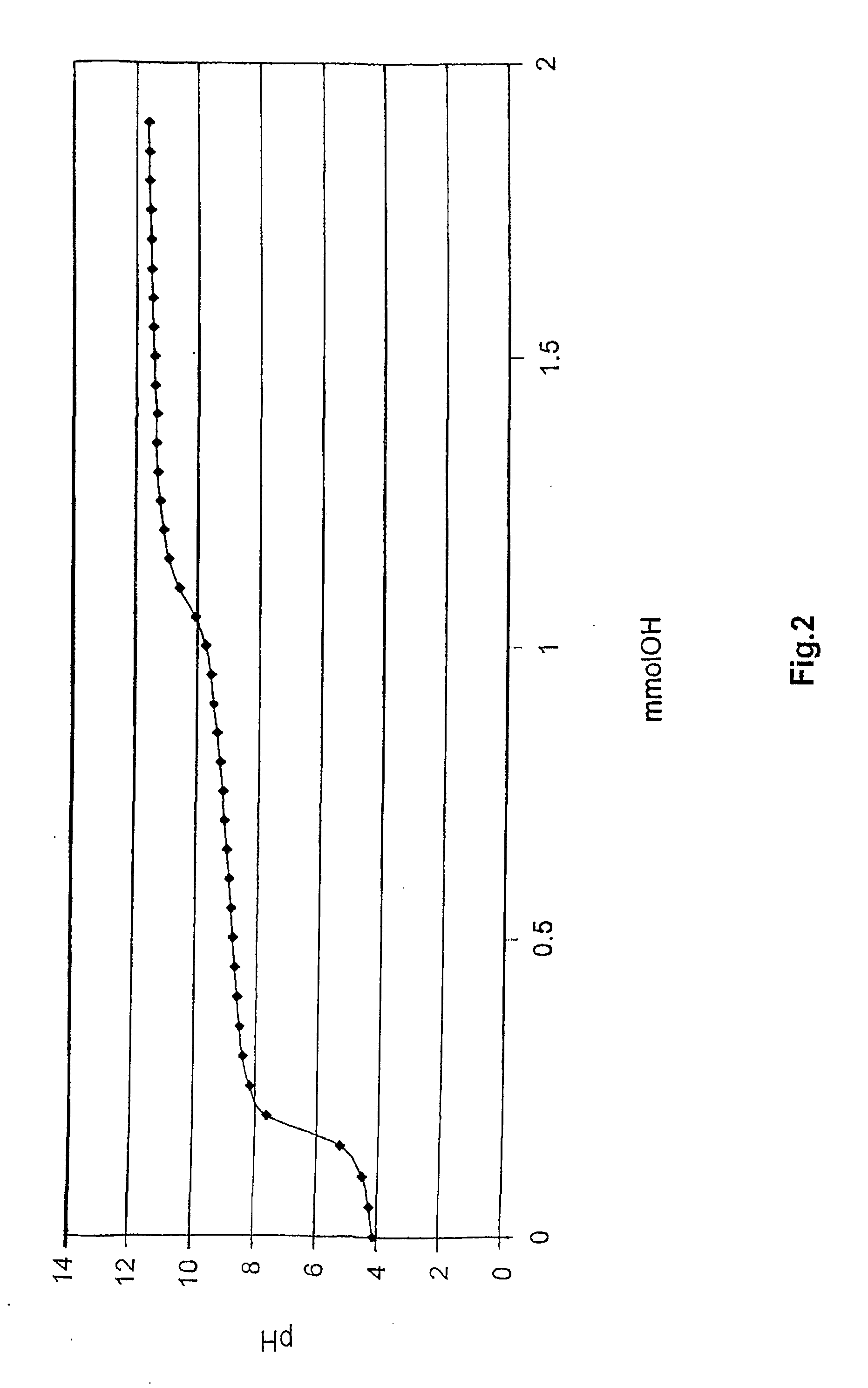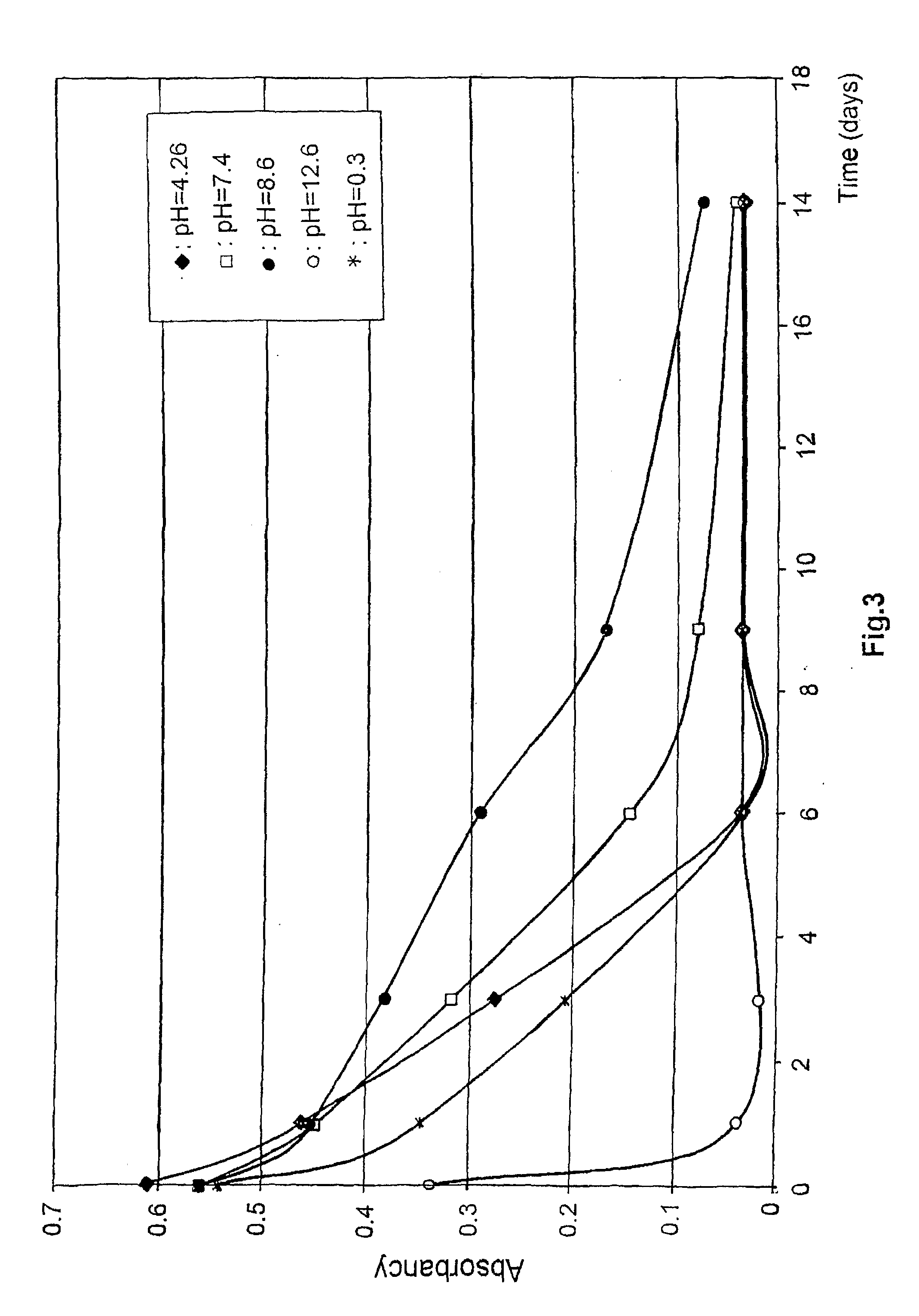Method for stabilization of s-nitrosoglutathione and composition prepared by the same
- Summary
- Abstract
- Description
- Claims
- Application Information
AI Technical Summary
Benefits of technology
Problems solved by technology
Method used
Image
Examples
example 1
1. Example 1
[0072]Preparation of GSNO
[0073]Method A
[0074]1.53 g (5 mmol) L-glutathione (GSH) was dissolved in a mixture of 5.5 ml water and 2.5 ml (2 N) aqueous HCl solution cooled in ice bath, then 0.345 g (mmol) sodium nitrite was added. The mixture was stirred for 40 min at 5° C., then 10 ml acetone was added and the solution was stirred for further 10 min. The precipitated brown deposit was filtered and subsequently washed with ice-cold water (5×1 ml), acetone (3×10 ml) and ether (3×10 ml). Thus 1.29 g (3.8 mmol) of S-nitrosoglutathione was obtained (76% yield).
[0075]Method B
[0076]First 0.204 g (0.666 mmol) GSH, then equimolar amount of NaNO2 was added to 8 ml deionized water, and the mixture was kept on ice and stirred for further 10 min in dark. The calculated concentration of the obtained fresh solution is 2.726 w %.
[0077]In subsequent experiments freshly prepared GSNO solution according to above method B was used.
example 2
[0078]General Preparation Method of Solutions Studied
[0079]Previously prepared PVA and chitosan gels were mixed to the GSNO solution of example 1B in an amount diluting the original GSNO solution to 3-fold. 200 μl aliquots were pipetted into the wells of a 96-well plate in duplicates. The plates were covered and stored at 4° C. in dark. Since during storage the preparations lost different amounts of water, after finishing the experiment it became necessary to complete them with water to the original volume. GSNO concentration was expressed as the % decrease of optical density measured spectrophotometrically at the start and at the end of the experiment.
example 3
3. Example 3
[0080]36-Day Stability Data
The experiments were performed analogously to the way described in example 2 by using the following gels. Measurements were performed after 36 days.
[0081]1-2. solutions 1-12:
[0082]Stock solution: 0.2 g PVA and 0.6 g PEG dissolved in 4 ml of water (Millipore Milli-Q). The following solutions were made from the stock:
[0083]1. solution 1: 800 μl stock solution, pH 5.
[0084]2. solution 2: 800 μL stock solution having a pH value adjusted to 9 with NaOH.
[0085]3-4. solution 3-4:
[0086]Stock solution: 0.15 g PVA and 0.65 g PEG dissolved in 4 ml of water (Millipore Milli-Q).
[0087]3. solution 3: 800 μl stock solution, pH 5.
[0088]4. solution 4: 800 μl stock solution having a pH value adjusted to 9 with NaOH.
[0089]5-6. solutions 5-6:
[0090]Stock solution: 0.1 g PVA and 0.7 g PEG dissolved in 4 ml of water (Millipore Milli- Q).
[0091]5. solution 5: μ800 μl stock solution, pH 5.
[0092]6. solution 6: 800 μl stock solution having a pH value adjusted to 9 with NaOH....
PUM
| Property | Measurement | Unit |
|---|---|---|
| Pharmaceutically acceptable | aaaaa | aaaaa |
| Solution | aaaaa | aaaaa |
Abstract
Description
Claims
Application Information
 Login to View More
Login to View More - R&D
- Intellectual Property
- Life Sciences
- Materials
- Tech Scout
- Unparalleled Data Quality
- Higher Quality Content
- 60% Fewer Hallucinations
Browse by: Latest US Patents, China's latest patents, Technical Efficacy Thesaurus, Application Domain, Technology Topic, Popular Technical Reports.
© 2025 PatSnap. All rights reserved.Legal|Privacy policy|Modern Slavery Act Transparency Statement|Sitemap|About US| Contact US: help@patsnap.com



